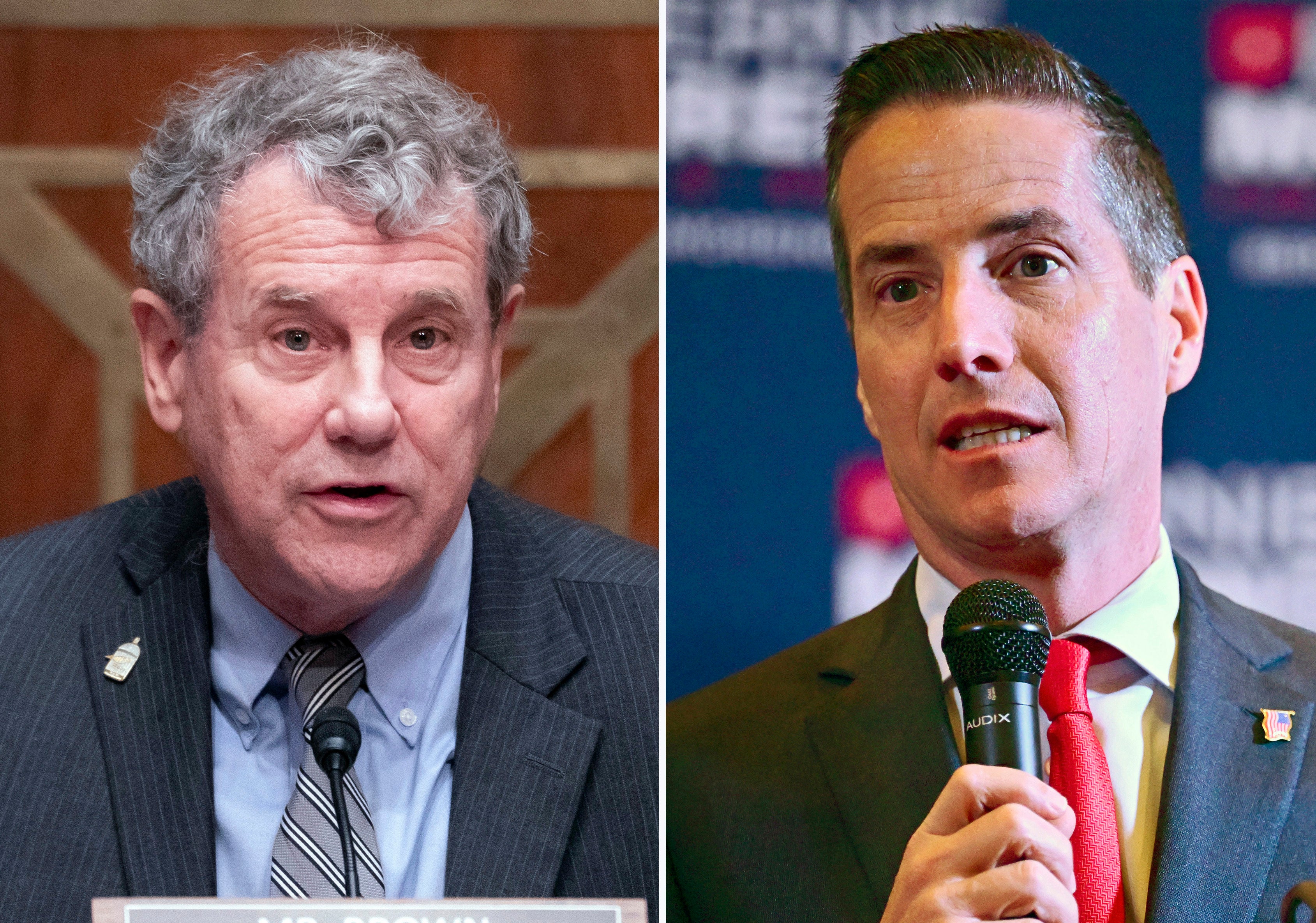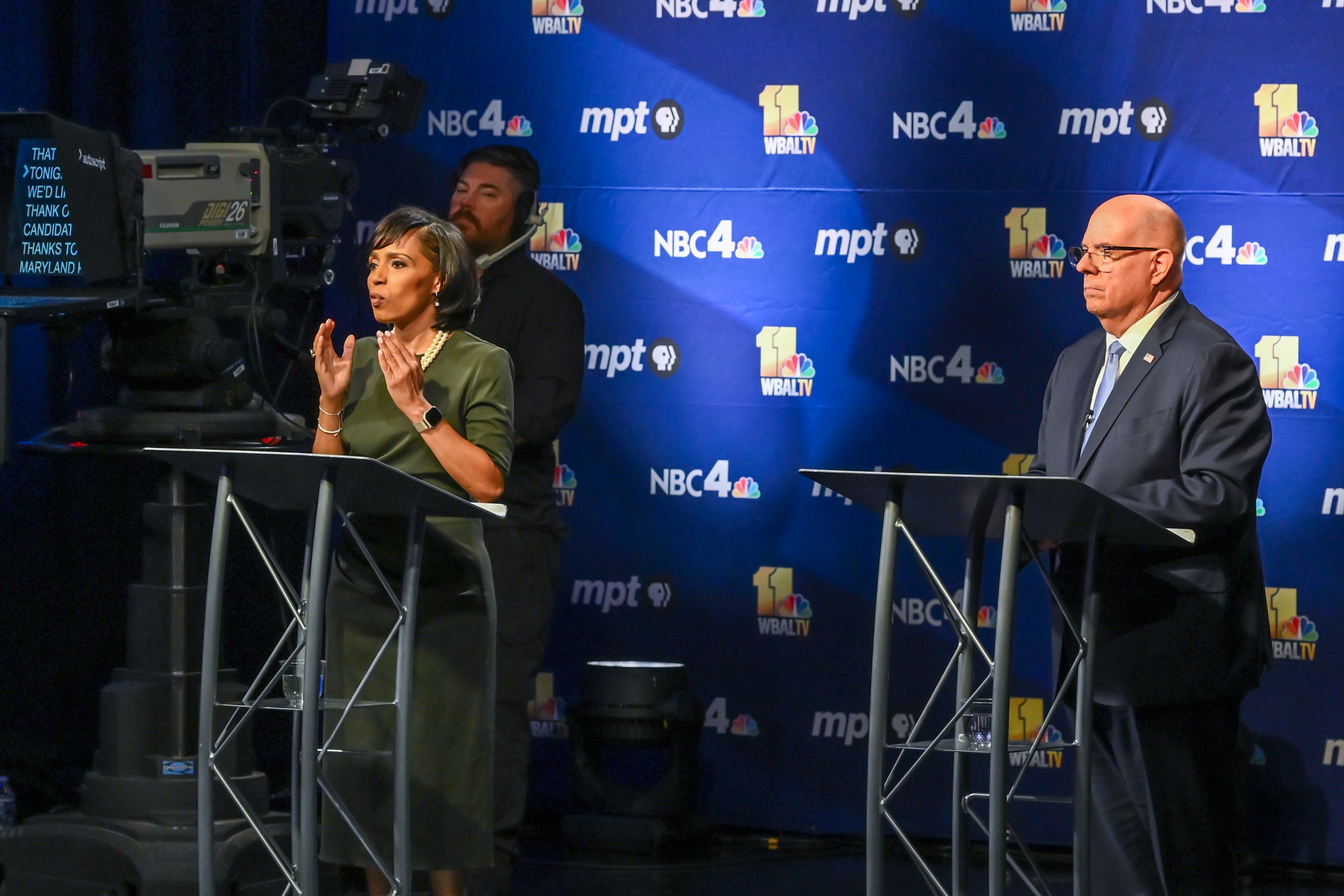Donald Trump and Kamala Harris are at the top of the ticket, but so-called down-ballot races across the country will determine the balance of power in Congress.
At the moment, Republicans narrowly control the House of Representatives, while Democrats narrowly control the Senate. With exceptionally slim margins in Congress, that could all change after election night.
Meanwhile, voters will also decide on dozens of state and local races and state ballot initiatives, weighing in on issues like minimum wage and the right to abortion.
Here are some of the most interesting races to watch, from wickedly expensive Senate races racking up tens of millions of dollars in campaign donations, to a volatile race for governor and a fierce attempt to derail support for abortion rights.
Montana Senate: Jon Tester vs. Tim Sheehy
Montana’s Democratic Senator Jon Tester is fighting for re-election in a state that Trump handily won by double digits in 2016 and 2020. Tester is up against Republican candidate Tim Sheehy, a wealthy former Navy SEAL who has lately been under scrutiny after a National Park Service ranger contradicted Sheehy’s claim that he was shot in Afghanistan.

The state’s other senator, Republican Steve Daines, who also chairs the National Republican Senatorial Committee, has helped steer Sheehy into a winning campaign, turning the race into something of a proxy grudge match to kick his colleague out of the Senate.

Texas Senate: Ted Cruz v. Colin Allred
Republican Ted Cruz is fighting for his political survival in one of the most expensive Senate races in the country.
No Democrat has won election to statewide office in Texas in 30 years, but a tight race between Cruz and his Democratic challenger and current congressman Colin Allred is drawing multi-million dollar spending from major political action committees hoping that support for Cruz has been steadily chipped away after Beto O’Rourke came within just three percentage points of defeating him in 2018.

Ohio Senate: Sherrod Brown vs. Bernie Moreno
Democratic incumbent Sherrod Brown is facing his toughest re-election campaign yet in a state that twice backed Trump by eight percentage points.
Brown, who has been in office since 2007 and is the only Democrat holding statewide office in Ohio, is battling a Trump-backed Republican who previously called the former president a “lunatic” but has since adopted his far-right anti-immigrant agenda and LGBT+ attacks.

Michigan Senate: Elissa Slotkin vs. Mike Rogers
It’s been three decades since Michigan voters sent a Republican to the Senate, but former congressman Mike Rogers is hoping to beat out current Democratic congresswoman Elissa Slotkin for outgoing Democratic Senator Debbie Stabenow’s seat, which she held for nearly 25 years.

Maryland Senate: Larry Hogan vs. Angela Alsobrooks
Maryland voters haven’t elected a Republican since Ronald Reagan, but former Republican Governor Larry Hogan left office last year with decent approval ratings, setting himself apart from Trump’s GOP and refusing his endorsement.
After Senator Ben Cardin announced his retirement, what was expected to be a relatively easy victory for a Democratic candidate was thrust into a more competitive race with Hogan’s entry.
Angela Alsobrooks — currently the chief executive of Prince George’s County — would be the first Black woman from the state elected to the Senate, and the fourth Black woman to serve in the Senate in its history.

Arizona Senate: Kari Lake vs. Ruben Gallego
Democratic congressman Ruben Gallego, a former Marine, will face Republican Kari Lake for Senator Kyrsten Sinema’s seat after she decided not to run for re-election.
Lake, a loyal Trump ally, famously lost her far-right campaign for governor in 2022 and has adopted Trump’s narrative of election denialism to reject the outcome of that race as well as the 2020 presidential election.

Pennsylvania Senate: Bob Casey vs. Dave McCormick
Republican candidate Dave McCormick is hoping to unseat Democratic incumbent Bob Casey, who has been in office since 2007. McCormick, a hedge fund manager, lost the Republican nomination for Senate in 2022 to Mehmet Oz, who then lost to Democratic Senator John Fetterman.
Casey, who once labeled himself a “pro-life Democrat,” has embraced abortion rights and legislation that would enshrine protections from Roe v Wade into federal law.

North Carolina governor: Josh Stein vs. Mark Robinson
One of the most controversial far-right candidates in 2024 races is a sitting lieutenant governor accused of calling himself a “Black Nazi,” with a history of Holocaust denial and attacks against civil rights and LGBT+ people. He’s also on tape preaching that “some folks need killing.”
That candidate, Trump-endorsed Republican Mark Robinson, is facing state Attorney General Josh Stein for governor of North Carolina, a state that Democrats are also desperate to win in the presidential race.
Just weeks before Election Day, Robinson filed a defamation lawsuit against CNN, asking for $25,000 in damages over the report on his alleged messages on a porn site message board.

America’s first trans member of Congress
Sarah McBride made history in 2020 as the first openly transgender lawmaker to serve as a state senator. She now faces Republican John Walen III for Delaware’s single seat in the House of Representatives, and, if elected, she will be sworn in as the first openly trans member of Congress.

Abortion is on the ballot
Voters in 10 states will decide on whether to adopt state constitutional amendments that would protect the right to abortion access in their states.
The campaign to support Amendment 4 in Florida has drawn fierce opposition from Republican Governor Ron DeSantis and his administration, which has threatened TV stations for airing campaign ads, used state resources to challenge it, and deployed law enforcement officers to people who signed petitions to support it.
In Nebraska, voters will decide on not one but two competing measures on the same ballot: One would protect abortion access, and another would ban it.

Battle for control of the House of Representatives
All 435 seats in the People’s House are up for grabs, and only about one in 10 are considered competitive. Republicans currently control a thin majority, under House Speaker Mike Johnson. Democrats would need to win back only a handful of seats to gain control.
Those close races are largely in battleground states like Michigan and Pennsylvania, where campaigns are banking on high turnout for the presidential race to focus voters on down-ballot races that could determine control of Congress.
Reshaped congressional districts — including in states that recently endured Supreme Court battles over gerrymandering and racist redistricting — have opened up a handful of new seats. Alabama and Louisiana voters are expected to pick up Democratic seats after redistricting battles in those states.







